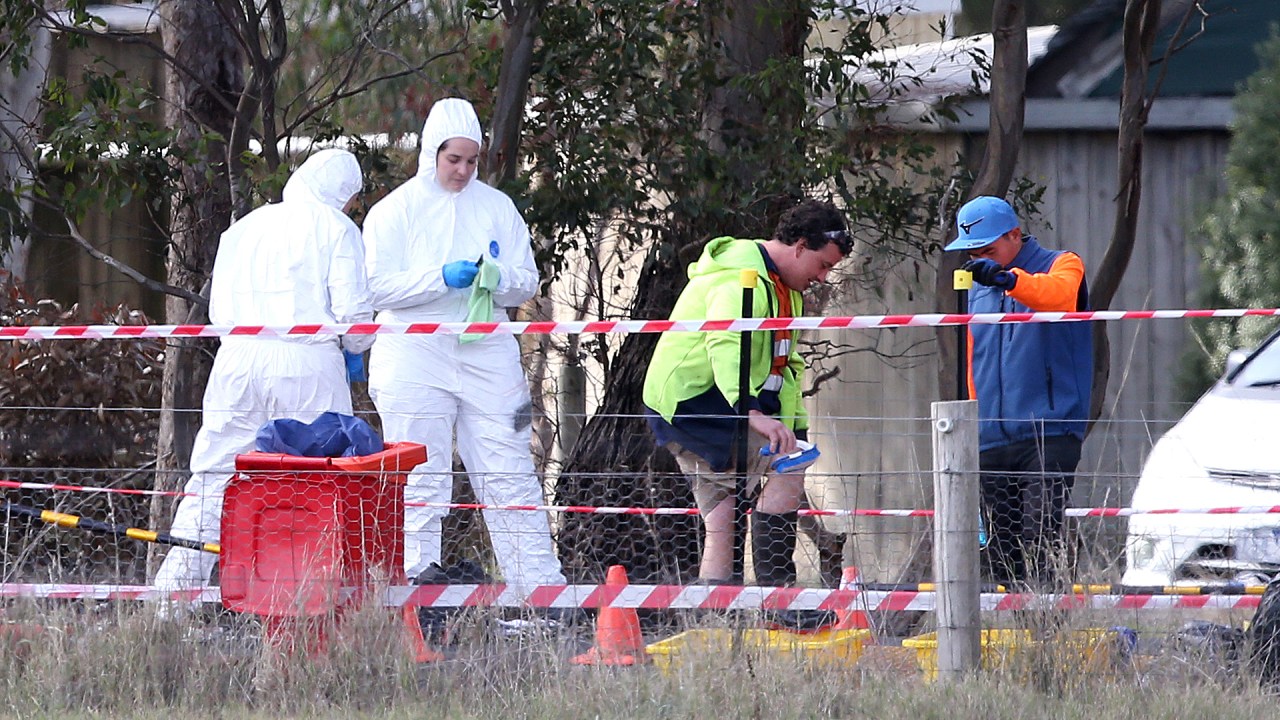Agriculture Victoria is responding to the third confirmed detection of Bird Flu at a Victorian farm, less than two weeks after the first human case in Australia ever was recorded in Victoria.
The United States Department of Agriculture has banned all poultry products from Victoria after an outbreak of avian influenza.
Bird flu was found on an egg farm west of Melbourne and was subsequently linked to another site which shared staff and machinery.
More than 500,000 birds have been euthanised as a result.
The property is located within a current five-kilometre Restricted Area in the Golden Plains Shire, where a separate farm in Meredith was placed into quarantine in May when the department was alerted to several poultry deaths due to the avian influenza virus.
A property in Terang, which is directly connected with the first outbreak at the Meredith farm, also had confirmed cases and was placed under quarantine.
The United States Department of Agriculture has banned all poultry products from Victoria after more than 500,000 birds had to be euthanised as a result of the Meredith outbreak.
Workers at the Meredith Chicken Farm go through a cleaning station before entering the farm. Picture: Mike Dugdale
Agriculture Victoria has since confirmed the H7N3 high pathogenic strain of avian influenza virus is the cause of the poultry deaths at the egg farm near Meredith, as well as Tuesday’s outbreak.
The property has been placed into quarantine and samples have been sent to the Australian Centre for Disease Preparedness in Geelong and AgriBio at La Trobe University in Bundoora for additional tests.
Victoria’s Chief Veterinary Officer Graeme Cooke said Agriculture Victoria staff were supporting the property owner and working closely with the industry to reduce the risk of spread.
“The detection of avian influenza at this additional property is not unexpected and is the result of ongoing surveillance activities within the Restricted and Control Areas,” Dr Cooke said.
“Bird owners who reside in the Restricted and Control Areas are reminded to follow the restrictions and report any unexplained deaths.”
Permits are required for the movement of birds, poultry products, feed and equipment on or off properties located within a restricted or controlled area.
“Regardless of whether you are a commercial producer, or you keep a few chickens in your backyard, there are things you must do to protect your birds from disease,” Dr Cooke said.
A third Victorian farm has been placed under quarantine after confirmed cases of avian influenza ‘bird flu’ virus were detected.
Highly pathogenic strains, such as H7N3 and H5N1, cause severe illness in poultry and wild birds but do not spread easily between people.
The first human case of H5N1 avian influenza in Australia was reported in a two-year-old Victorian child on May 22.
The child acquired the infection in India and experienced a severe infection.
Contact tracing identified there were no further cases of the disease connected to the two-year-old.
Loading embed…
Dr Emma Grant, a Research Fellow at La Trobe Institute of Molecular Science explained why human-to-human spread is rare.
“There are many different strains of influenza virus which can infect a range of mammals including humans, poultry, aquatic birds, horses and pigs,” Dr Grant said.
“However, due to the way avian flu transmits, the risk to the general public is very low.”
“Influenza viruses bind to specific proteins in the respiratory tract and these proteins differ slightly between humans and other animals susceptible to influenza virus infection. Therefore, transmission of avian influenza viruses to humans is uncommon, as are instances of human-to-human transmission”.
Dr Grant urged farmers to remain vigilant due to the rapid rate the disease can spread.
“The influenza virus strain responsible for the outbreak on the farm in West Victoria is reported to be a H7N7 virus, a different strain from the H5N1 strain currently being seen across the USA.
“Avian influenza viruses can spread quickly through animals, and farmers will need to remain vigilant.”
The U.S. Department of Agriculture is ordering dairy producers to test cows that produce milk for infections from highly pathogenic avian influenza (HPAI H5N1) following the discovery of the virus in samples of pasteurized milk taken by the Food and Drug Administration. Justin Sullivan/Getty Images/AFP
Recently, the H5N1 strain has killed millions of animals across the globe.
A devastating outbreak was discovered last month in Antarctica, with thousands of dead Adélie penguins found on the globe’s most southern continent in what scientists are describing as “mass mortality events”.
A global outbreak is currently underway, with the United States making headlines in March when it was revealed the disease had infected dairy cows and more than 90 million birds. This is the first time bird flu has ever been detected in cows.
There are also serious concerns for species in South America, with the disease killing more than 5,000 sea lions in Peru in a matter of months.
Cases have also been detected in Asia, Europe, the Middle East and Africa.

